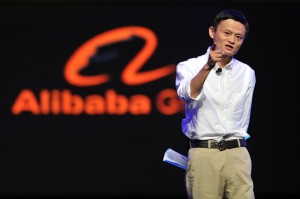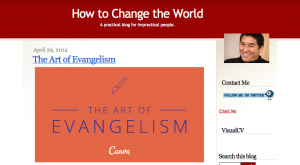The biggest news on the internet today surrounds the topic of
Alibaba Group making a record breaking $9.3 billion in sales today during China’s Singles Day, which also happens to be Alibaba’s one-day shopping bonanza of the year. They made a 60% increase in sales from last year’s $5.8 billion in sales. So the question now may be, what is this Chinese e-commerce platform doing to declare itself as such a powerhouse, and how are they doing so well?
In the video below that I watched, there was a more detailed explanation as to what Jack Ma, chairman of Alibaba Group, is doing to make his company so successful. When I first read the article I was extremely curious as to how this company has generated that much money in sales, in just one day. Was there some kind of exclusively limited sale going on? Jack Ma goes on to explain his strategy as “global vision, local win”. I strongly agree with his theory and mission statement; the globalization of companies needs to start with the idea of how you can help that other country, what are their needs, and how can you create value for them. Ma also states that there are many small businesses outside of China using their services free of charge, which I think is a great way to build good connections between businesses of different countries. “It’s not about how much revenue we can bring out of China, rather what value we can bring to local people” (Jack Ma, Stanford Business School Talk Video).
Sources:
http://www.inc.com/jack-ma/alibaba-jack-ma-reveals-his-global-strategy.html







 It is a well-known fact that society benefits from the works of organizations set with a clear goal to better our world. Whether it be keeping peace and security, or generating a business based on a non-profit entity, there are many organizations out there that are determined to make a difference and create positive impacts in different ways.
It is a well-known fact that society benefits from the works of organizations set with a clear goal to better our world. Whether it be keeping peace and security, or generating a business based on a non-profit entity, there are many organizations out there that are determined to make a difference and create positive impacts in different ways.